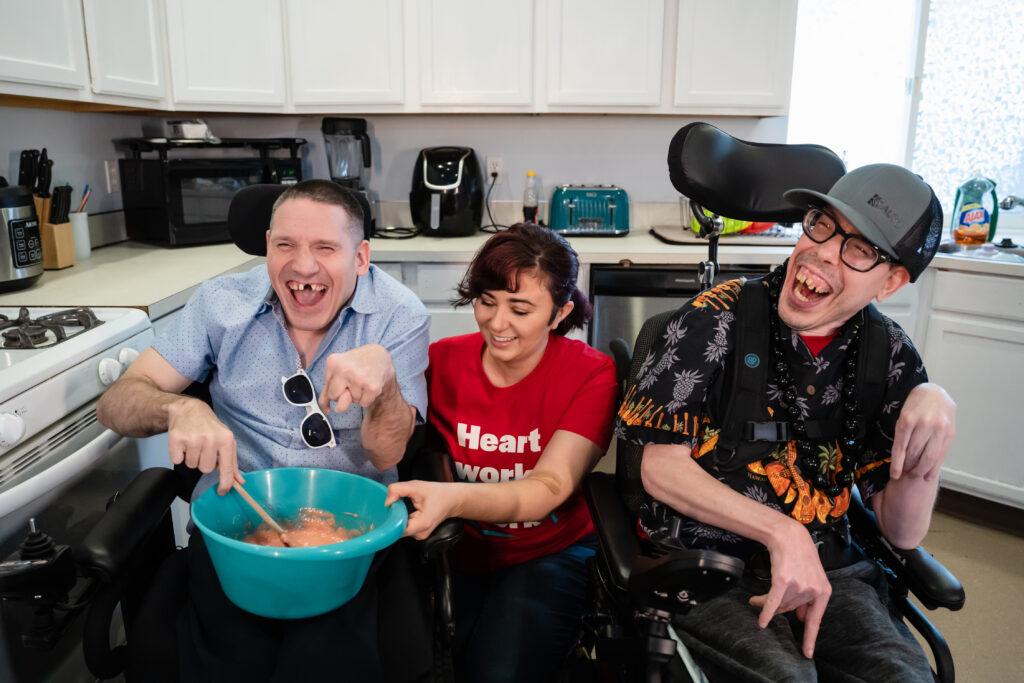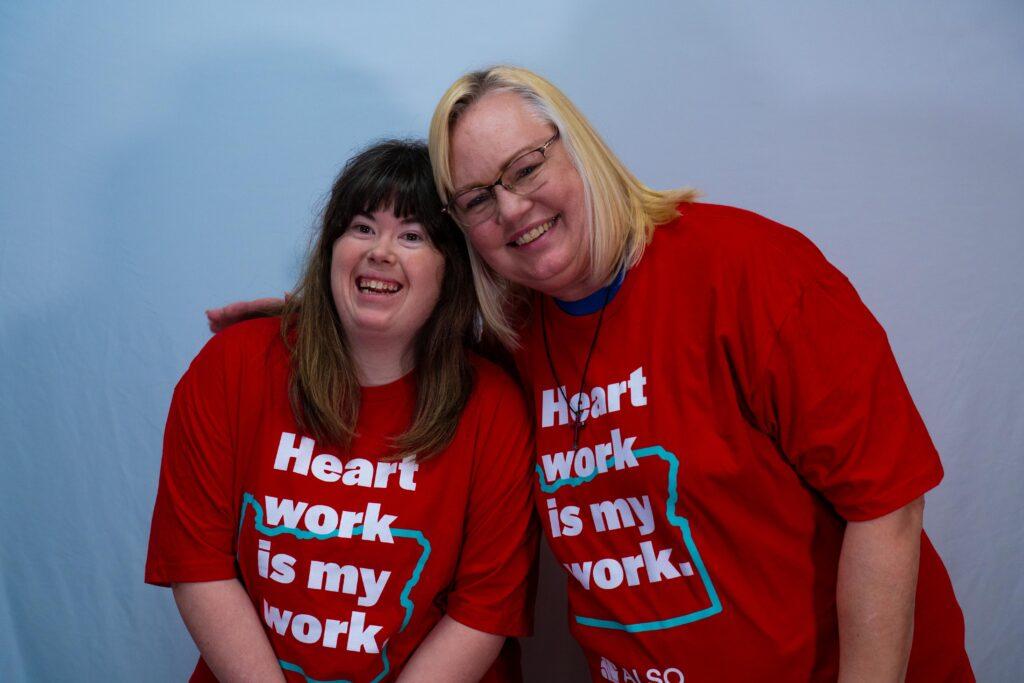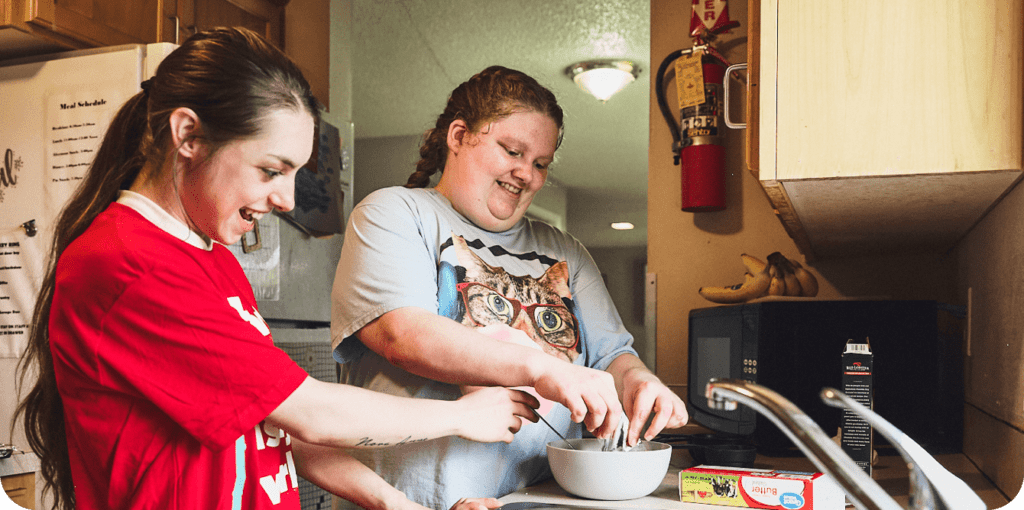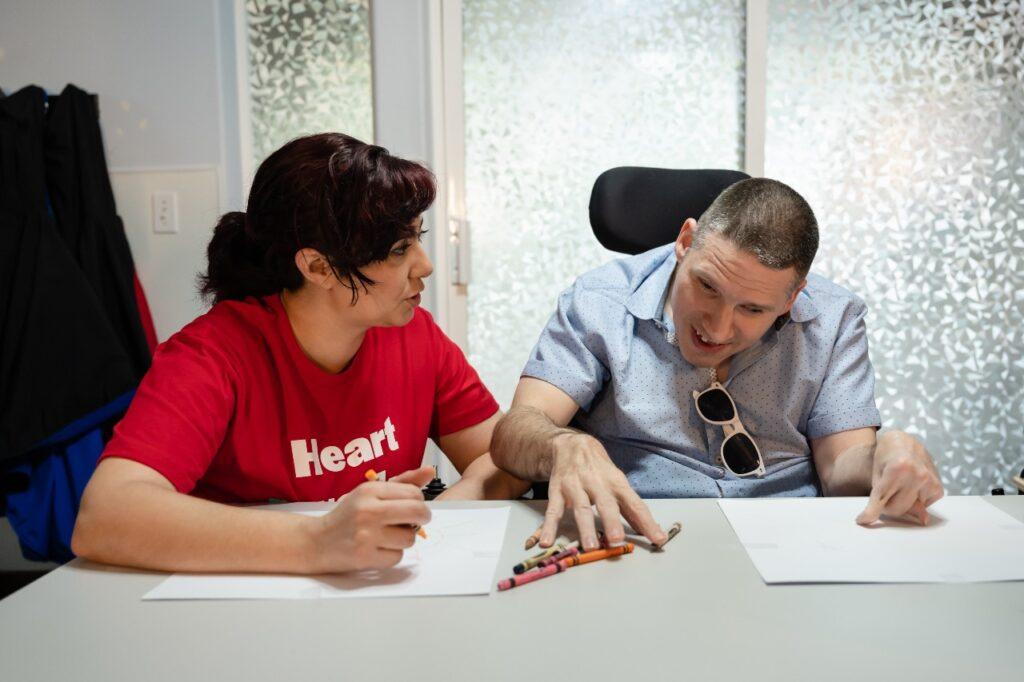
“I have a disability yes that’s true, but all that means is that I may have to take a slightly different path than you.”
-Robert M. Hensel
A powerful statement, isn’t it?[1] As a person born with spina bifida, Robert understood early on that he needed to take his own journey to get what he wanted from life. And indeed he did! He’s internationally known as a poet, writer, athlete, and disability advocate. As dedicated providers of support services for people with intellectual and developmental disabilities (I/DD), the team at ALSO applauds Robert’s determination.
In this blog, we will describe the many benefits of person-centered support services. When well-planned and well-implemented, these processes help individuals with I/DD achieve their goals for the future, even if they need to take a different path, like Robert. They are considered best practices in helping individuals with disabilities to create their own customized pathway to living a life of their own choosing.

At the core of the person-centered approach[2] is that everyone has the right to make decisions about their own life. In this approach, it is fully recognized that even though someone may have a disability, they can use their unique strengths, abilities, preferences, and interests to achieve desired goals.
What eventually came to be called, ‘person-centered support services’ began approximately in the 1990s, when disability consultants like Michael Smull started saying to individuals with disabilities, “If we spend time and listen to you, we can learn what matters to you…We can learn about your positive attributes and how you are best supported so that you have a good day.” [Paragraph 2]. It was considered a relatively new process, compared to the medical model of issuing a list of conditions or diseases, and figuring out how to fix them.
This is really why person-centered support services are so important: because the cornerstone and foundational belief is that the person with disabilities must have their voice heard,[3] and their preferences respected. The trust that is gained by this positive relationship between the individual with disabilities and their support team paves the way for planning and assistance with short and long-term needs such as:
In sum, the focus is on creating a positive vision[4] for the future based on choices, current abilities, and capacities for learning new skills. In other words, what a person can do, not what they cannot do.
LEARN MORE: Kendra’s Story[5]

What does it mean to have a good quality of life? Well, it’s different for everyone. For some of us, it may be being in good physical or mental health. For others, a good quality of life means being close to family. This is why person-centered care is so important. Service providers have the opportunity to listen and learn from each individual they support, just what makes that person look forward to each new day.
Person-centered support services can have a positive impact on several measures of quality of life, including more opportunities to make choices, or the opportunity to participate in community activities. Research has revealed person-centered planning[6] has a positive impact on people with intellectual disabilities in that they overall simply feel better about themselves.
A key characteristic of person-centered support services is that the process is directed by the person who receives the support.[7] These opportunities for self-direction are excellent confidence-builders for encouraging progressively greater levels of independence.
Increased independence often goes hand in hand with learning through making mistakes. When this happens, ALSO direct support professionals (DSPs) and other staff are ready to provide assistance and create opportunities for skill improvement.
LEARN MORE: An Intimate Conversation with ALSO
Recent research has confirmed that there is a greater chance of increased community participation and social inclusion for adults with intellectual disabilities when a person-centered plan is embraced.[8]. At ALSO, we’re accustomed to providing education and advocacy to help ensure full inclusion in every possible aspect of community living for the people we support.
LEARN MORE: ALSO’S Mission and Vision for Full Community Inclusion
The people that become involved with helping the supported person achieve their desired goals can be quite varied. The person supported may choose to have family members, supervisors, community members, etc. as a part of their support system. Additionally, several individuals from health care or human services professions are typically part of the support system, including:
These individuals make themselves available to the person supported to discuss concerns and offer encouragement. They also take part in celebrating all successes!
From the planning process to the implementation of supportive services, there is a discovery process [9] on the part of the person supported, as well as their support team. Through exploration, trying new things, and taking risks, the person with disabilities gains insight into their own capacities, and the areas in which they need extra support, or even long-term services.
By the same token, the support team is considering ways to help the individual achieve their goals and exercise their full potential. Everyone on the team can be creative in addressing a particular issue the supported person might have. For each solution that has been achieved, individuals feel steadily more empowered about meeting additional challenges.
The beauty of the individualized person-centered support plan is that no two plans are exactly alike—they are customized to support a wide variety of needs. This may seem complicated for support teams initially. However, all teams need to do is stick to the initial statements put to the supported person: “What kinds of things matter to you?” and “We’d like to listen to you so that we can learn how to help you to have a better day… Can we help you with that?” These humble sentiments serve to open up possibilities for a collaborative and exciting relationship between supported person and staff.
Person-centered support services almost always include opportunities for individuals with disabilities to interact with members of the community.
As family members notice the improved independence and happiness of their loved one with a disability, they start feeling more at ease and comfortable. They see that their relative with a disability can effectively tolerate family situations which, in the past, may have led to anxiety or unacceptable behaviors.
LEARN MORE: How Family Preservation Services Help Children with Disabilities
The person-centered planning process is equally important for positive educational outcomes. We take the time to really comprehend how the supported person is doing at school. We listen carefully to what frustrates them, why they like or don’t like certain subjects, and if they are forming friendships. We are there to help with problem-solving, communicating with teachers, and exploring types of technical assistance that might be available to make the learning process easier.
For most of us, when we started looking for our first job, we thought about what we wanted to do, correct? We made choices according to say, whether we enjoyed helping customers, or preferred solo activities, such as doing data entry. This is why the person-centered approach has been a key factor in the success of supported employment programs. We ask those we support what they would like to do for a career. Then we begin the exploration of how we might be able to help the person meet their career goals.
LEARN MORE: Employment Services Throughout Oregon
Supported people who are receiving high quality person-centered support services have the benefit of being able to make informed choices.
Let’s say Joe (who just landed a job through supported employment), is tired of living in his parents’ basement and is unsure if he has enough finances to move into his own apartment. The support services team offers to help him understand his monthly budget. As it turns out, Joe’s annual income (including social security benefits) falls short of even the least expensive rental units in the area. But what about trying to get a roommate? After considering various housing options and weighing the advantages and disadvantages of having a roommate, Joe can make a thoughtful, well-informed decision that best serves his financial needs and also fits his personality.
What happened? Well, Joe didn’t really want a roommate because he loved his privacy. So, he convinced his parents to convert the garage into a larger apartment with a separate entrance. He committed to helping do the work and defray some of the renovation costs. This allowed him the privacy he desired and more freedom to come and go as he pleased.

At ALSO, we firmly believe that no matter what disability a person may have, the right to make choices about one’s own future is ever-present. We take our Mission, Vision, and Core Values to heart as we truly listen to the people we support and how they want to establish meaningful lives for themselves.
We have been committed to person-centered support services since we opened our doors to serve the people of Oregon over 25 years ago. Every individual we support at ALSO has their own person-centered support plan. The first step of developing that plan has always been to ask the individual about the kind of life they would like to have. This includes all the services in every level of care that we offer, including:
Our delivery of services is second to none, and we keep raising our standards. For example, about 25 of our employees went through special training to become person-centered facilitators.
We close with another statement by Robert M. Hensel:
“Having a disability shouldn’t strip away the person, but instead, create a life that’s uniquely tailored to fit an individual’s needs.”
That’s how we feel too!

Sign up for our newsletter to get our latest news, content, and job opportunities.
Help us ensure that everyone has the same opportunities in their home, workplace and community. Let’s make dreams!
